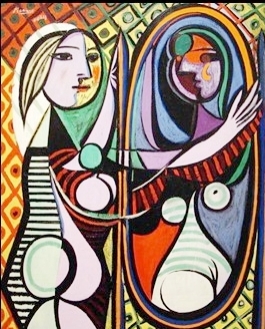Psychological Science with a Social Justice Mission. Over the past decade, the number of people who have been forcibly displaced by conflict, persecution and natural disaster has more than doubled to more than 117 million people. Due to climate change and conflict, it is projected that between 200 million to 1 billion people will be forcibly displaced by 2050. Nevertheless, despite the magnitude, urgency, and projected growth of the refugee crisis, our collective scientific knowledge and capacity to prevent and heal the devastation of forced displacement is years behind the global challenge. My group’s work on Moments of Refuge was inspired by one of my first PhD students and human rights activist, who argued that we must contribute to the nascent state of clinical psychological science dedicated to the fast-growing local and global human rights- and mental health- crisis of forced displacement.
Inter-Cultural Community-Embedded Lab. Thus, in 2010, we launched a mobile, community-based clinical science laboratory, embedded in the urban heart of the African asylum-seeker community, in S. Tel Aviv. We have applied an experimental inter-disciplinary, inter-cultural and community-participatory approach to our operations and our science. Our work has focused on the interface between forced displacement, mental health, and social justice. Our efforts to bring rigorous, creative and ambitious clinical psychological science to refugee mental health ultimately led to the Moments of Refuge Project – a social impact- and research- initiative that aims to empower refugees to heal and thrive.
Over the past decade, we carried out a number of studies out of the S. Tel Aviv Bus Station, community-based NGOs (e.g. Physicians for Human Rights, Refugee Women’s Collective, Refugee Community Youth Club), a kindergarten serving asylum-seeker families, and a tent adjacent to a refugee detention center in the desert. This research has helped us to (1) identify mental health needs and promising prevention and intervention targets tied to resilience and trauma recovery; (2) to develop specialized interventions to facilitate trauma recovery and mental health among forcibly displaced people, their families and post-migration communities; and (3) to conduct science-based advocacy by sharing and communicating our findings in order to help protect refugee human rights and mental health through policy and public opinion.
Mindfulness-Based Trauma-Recovery for Refugees. Most prominently, our findings led to the development of Mindfulness-Based Trauma Recovery for Refugees (MBTR-R) – a trauma-sensitive and socio-culturally adapted mindfulness- and compassion-based intervention program tailored to diverse forcibly displaced people; and a human-supported digital mobile-health adaptation of the program to scale-up its global reach and accessibility. Through randomized clinical trials research, we found that the intervention not only helped asylum-seekers experience moments of refuge and safety, but for many, also reduced mental health conditions endemic to forced displacement (e.g. PTSD, depression, suicidality). We are currently conducting a Sequential Multiple Assignment Randomized Trial to test and optimize our digital mobile-health program in a high-risk urban post-displacement setting, and to develop tools to facilitate inter-cultural implementation and scaling. Building on this work, we are now also exploring related approaches to cultivate compassion and inter-connection between forcibly displaced people and host-nation community residents.
Collaboration for Impact. It is important to note that a foundational basis for my group’s work to collaborate with, study and serve forcibly displaced communities has been through close and sustained partnerships with refugee community leaders as well as the NGOs, community-based organizations, and municipal government bodies that serve them. My group’s cooperation with these organizations, nationally and internationally, has entailed research and implementation work cooperation, sharing space and operational resources and team members, and shared advocacy to shape public policy. Through this systemic and community-participatory approach to clinical psychological science, we have also sought to support our partner organizations’ national and international advocacy work, through data and evidence, in order to impact policy-making to help protect the human rights of these communities.
Looking Forward. Looking forward, I am excited about the potential of Moments of Refuge to contribute to an emerging clinical psychological science of forced displacement, as well as its impact on forcibly displaced people around the world. To do this work and scale-up our impact, we aspire to broaden our reach and study forcibly displaced people from multiple origin countries and post-displacement settings around the world. I am particularly interested in whether and how mindfulness- and compassion-based training can impact four inter-related domains important to refugee communities: prevention of poor mental health outcomes post-displacement; prevention of gender-based and intimate partner violence; attenuation of inter-generational transmission of trauma and stress to children post-displacement; and augmentation of host-nation re-settlement and mobility programs in order to amplify their pro-social impact. I care deeply about this work and believe it is truly important psychological science.




